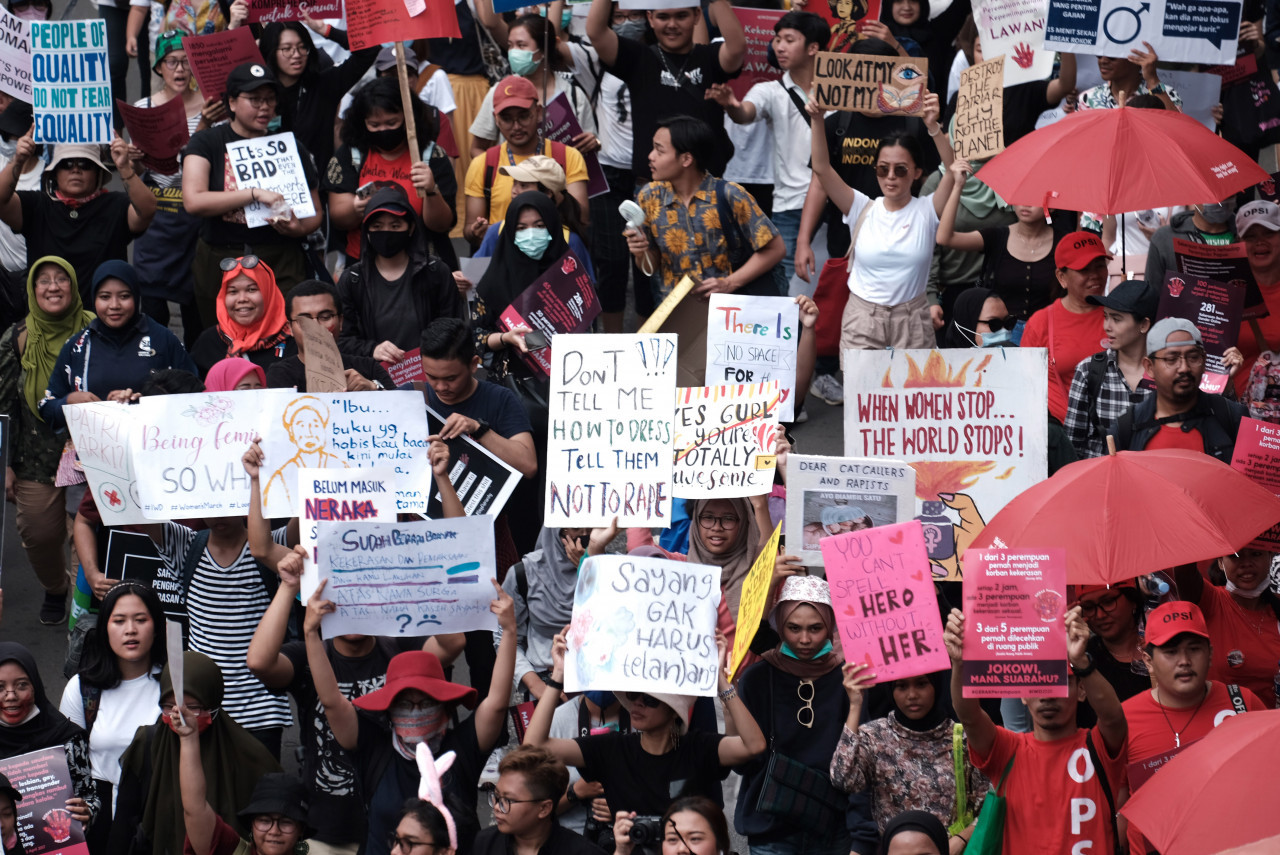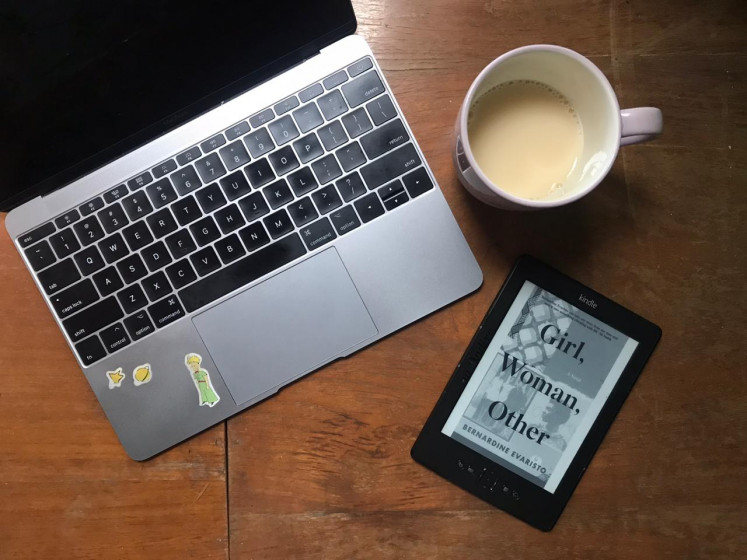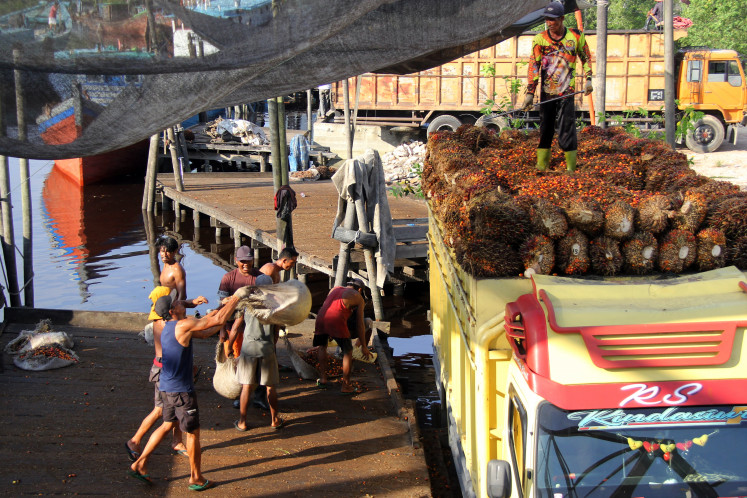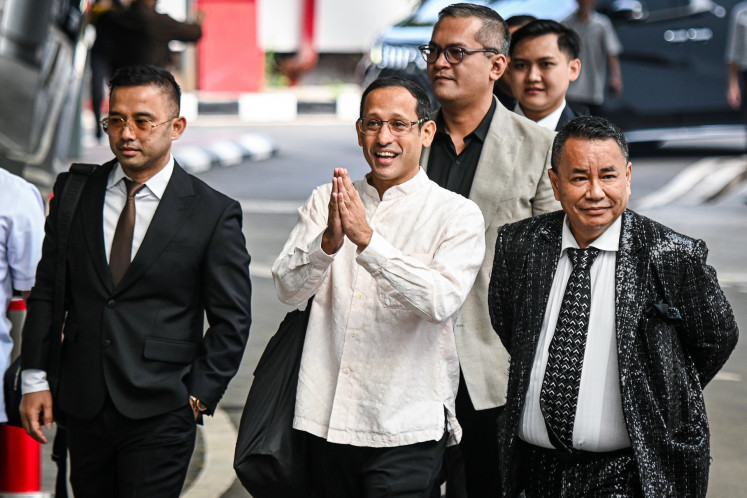Popular Reads
Top Results
Can't find what you're looking for?
View all search resultsPopular Reads
Top Results
Can't find what you're looking for?
View all search resultsEmbracing imperfections in intersectional feminism in ‘Girl, Woman, Other’
The book brings some great news; we don’t need to be perfect to be feminists. Don’t even bother trying to be perfect. This world is destined to be broken, and it is by no means a perfectible place.
Change text size
Gift Premium Articles
to Anyone
L
iterature’s advantage over expository writing lies in its ability to help us immerse ourselves in the lives of characters, fathoming our common human condition and vulnerability through these fictitious people, thereby engaging our emotions at a visceral level. Sometimes, emotions can be a more powerful tool for introducing an idea than intellectual channels and abstract ideas.
This also rings true for feminism. Girl, Woman, Other (2019) by Bernardine Evaristo tells of women’s life experiences and how many layers of power impact their lives, true to the zeitgeist of intersectional feminism.
The book is written in beautiful lyrical prose and explores a myriad of facets of social and political identities, which create different types of discrimination and privilege. It follows 12 characters, mostly black British women from diverse backgrounds and generations – and from a spectrum of gender identities, expressions and sexual orientations.
The book shows that there are many variables of identity that are used to stratify pecking orders and hierarchies, as well as to justify the subjugation of others.
One of the most memorable parts of the book for me was the story of a non-alcohol-drinking, vegan, non-smoking, radical feminist separatist lesbian African American housebuilder who advocated for a lesbian utopian community that supported each other but turned out to be an abusive partner that forced her lover, a fellow black lesbian woman, to give up her independence and submit to her completely, behaving exactly like a male chauvinist.
This shows that sharing the same marginalized race, gender or sexual orientation provides no guarantee of equality when other determinants of power dynamics, such as status and experience are at play.
Intersectional feminism can also go overboard because it gets too caught up in labels and rhetoric demanding idealism and perfection. In the book, we can see how the Marxists, the hippies, the environmentalists, the vegetarians, the Rastas, the punks, the gay guys, the radical feminists, the lesbian feminists, the black radical lesbian feminists and the anarchists each wants different things and form exclusive cliques.
This infinite cleavage of identity groups shows us that no matter what their ideologies are, people can become exclusive and controlling once they’re given a little power.
This illusion of ideological perfection causes us to expect too much from activists who work to correct the injustices of our human civilization, such that we no longer tolerate their weaknesses. With the current climate of political polarization, encouraged by social media, people with different beliefs tend to antagonize each other without trying to initiate a dialogue to understand each other’s point of view and biases. Even when you share the same ideology, you might be ostracized by your group for not agreeing to specific principles or ways of doing things as demanded by your in-group’s ideology or belief system.
For instance, Chimamanda Ngozi Adichie, the Nigerian-American author of the 2014 book We Should All be Feminists and also a lesbian, gay, bisexual and transgender (LGBT) rights advocate in Nigeria, was sharply criticized by some feminists for the following comment, “When people talk about, ‘are trans women women?’ my feeling is trans women are trans women.” This shows that people are quick to punish you when you violate the increasingly intricate demands of political correctness, despite already professing “the right politics” (by defending LGBT rights, for instance).
Speaking of demanding perfection and idealism, while the book has received critical acclaim and made Evaristo the first black woman to win the Man Booker Prize – in 2019 along with The Testaments by Margaret Atwood – some readers have criticized Girl, Woman, Other because they consider the female characters in the book too passive or too emotionally dependent on their partners and thereby not “feminist enough”.
Chronicling contemporary feminism: Bernardine Evaristo’s novel Girl, Woman, Other presents an insider’s look into the dynamics of feminism in the United Kingdom, marked by variables such as classism, racism as well as sexual orientation and gender identity diversity. (Courtesy of/Aqmarina Andira)Rather than seeing this as a weakness, I see it as furthering the characters’ believability. After all, who among us is an absolutely powerful, active and emotionally independent person, no matter how “feminist” we are? In fact, the book brings some great news; we don’t need to be perfect to be feminists. Don’t even bother trying to be perfect. This world is destined to be broken, and it is by no means a perfectible place.
To quote Roxane Gay in her 2014 book Bad Feminist, “I embrace the label of bad feminist because I am human. I am messy. I’m not trying to be an example. I am not trying to be perfect. I am not trying to say I have all the answers. I am not trying to say I’m right. I am just trying – trying to support what I believe in, trying to do some good in this world, trying to make some noise with my writing while also being myself.”
Our flaws and mistakes don’t mean we are bad people. We should not stop our efforts to learn and grow. If we allowed only perfect individuals (and let’s face it, they don’t exist) to speak about women’s rights while silencing others whom we considered flawed, progress would be much harder to attain. Maybe, embracing our imperfection as feminists could be the key to fighting successfully for equality and social justice for all. (Ogi/Mut)
Aqmarina Andira is a cofounder of the Baca Rasa Dengar book club and Rumah Cerita, a creative writing community for children and young adults. She loves reading, hiking, traveling and works at the CEO’s office at a technology company.











